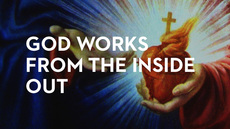“You shall not make for yourself a carved image, or any likeness of anything that is in heaven above, or that is in the earth beneath, or that is in the water under the earth. You shall not bow down to them or serve them, for I the Lord your God am a jealous God, visiting the iniquity of the fathers on the children to the third and the fourth generation of those who hate me, but showing steadfast love to thousands of those who love me and keep my commandments.” Exodus 20:4–6
Introduction
Some four hundred years before the commandments were given to Moses, Joseph welcomed the Israelites into Egypt to escape famine. After many generations of living as slaves under Egyptian rule and custom, they were acculturated to the worship of many gods.
God sent Moses to deliver his people out of this environment and lead them to the Promised Land. In Exodus 32, we find them waiting in their camp for Moses to return from Mount Sinai. Their hearts become increasingly unsettled during the wait, and they decide to craft a god of their own. Keep in mind, this was almost immediately after one of the greatest examples of God’s mercy and deliverance ever recorded and as he was faithfully providing sweet water and manna to sustain them.
Yet, their hearts still grumbled. They didn’t trust him to provide for their needs. God himself was just not enough in their eyes, and they wanted something other than the freedom God had provided.
Though this is an ancient text, not much has changed. We still seek comfort in things created, instead of Creator God.
Observation
Read
- As Moses was on Mount Sinai for forty days receiving the Ten Commandments from God, what did the people ask Aaron to do, and what was their
- Compare God’s response to idol-making in these verses to the original commandment in Exodus 20:4–6. What differences do you see?
- Moses implores God to restrain his wrath for Israel’s abandonment of their promise. How does Moses react when he descends the mountain and sees with his own eyes what they have done?
Interpretation
Some seven hundred years later, the prophet Isaiah writes of how the children of Israel again forget the infinite greatness of God and his desire to work for their good.
Read
- List the specific abilities of God noted in this
- What does this teach us about the great, infinite reach of God?
- How does this compare to any crafted idol?
- Why is God so specific with us about his eternal power?
- How does the description of God’s character in these verses discourage the idea of trusting in any created thing? In Romans 1, Paul describes how God has given every man the evidence of himself through what he has created.
Read
- What truths do we learn about God in verses 18–20?
- To whom does Paul say these truths are revealed?
- What choices are made in verses 21–23?
- What idols are exchanged for the glory of God?
- What was the lie that they exchanged for the truth? We have hope. God’s commands are for us, not against us, and they show us his deep, enduring love and desire for us to live in freedom, to worship him alone. He knows that we are going to sin against him and against others. He gave his own Son to pay the penalty for our disobedience; Jesus bore the wrath for our sin on the cross once and for all. His last words were, “It is finished.”
Application
- Has there ever been a time in your life when you thought God was not good?
- How in the past have you taken matters into your own hands?
- Which people or things did you most seek comfort in?
- In what areas are you not satisfied? In light of your answer, how can you trust God in the unknowns of life going forward? If you are a believer and follower of Jesus Christ, saved by his grace, you are given an opportunity to confess your worship of lesser gods. Because of his ransoming blood, our wayward hearts are redeemed so that we may stand spotless before the throne of God.
For further study
“The Expulsive Power of a New Affection” by Thomas Chalmers
This devotion is adapted from the Ten Commandments Study Guide.















